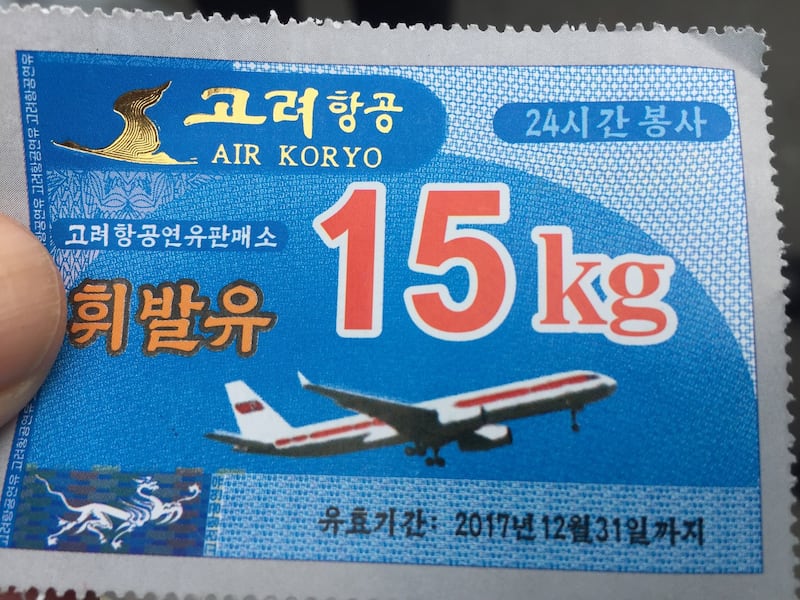Citizens in North Korea are cashing in by trading fuel coupons and mixing gasoline with cheaper fuels as prices surge in the wake of Russia’s invasion of Ukraine, sources in the country told RFA.
Following the Feb. 24 invasion, the U.S. and other countries placed sanctions on Russia, a major petroleum exporting country, resulting in higher global gas prices.
As of Tuesday, average prices in the U.S. reached $4.32 per gallon, their highest level since July 2008. In South Korea, the price per liter reached above the 2,000 won ($6.16/gallon) line for the first time in more than nine years.
North Korea, which relies primarily on fuel imports from China and Russia, has also seen a steep increase. People who travel between provinces can purchase fuel coupons exchangeable for gasoline from one area where gas is cheaper and sell them where it is more expensive, sources said.
In the city of Sinuiju, across the Yalu River border from China’s Dandong, gas cost 7,500 won per kilogram ($3.55/gallon) in January, increasing to 8,700 won ($4.12/gallon) in February and 11,000 won ($5.20/gallon) in March, a total increase of 46 percent. Prices for diesel fuel more than doubled over the same period.
Gas is more expensive farther inland, so the price hike was even more crippling. In the city of Pyongsong, just north of the capital Pyongyang, gas costs almost 50 percent more than in Sinuiju.
| Sinuiju | Jan | Feb | Mar | Pyongsong | Jan | Feb | Mar |
|---|---|---|---|---|---|---|---|
| Gasoline | 7500/kg $3.55/gal | 8700/kg $4.12/gal | 11000/kg $5.20/gal | Gasoline | 11000/kg $5.20/gal | 13000/kg $6.13/gal | 15000/kg $7.10/gal |
| Diesel | 3800/kg $1.79/gal | 4400/kg $2.07/gal | 7800/kg $3.69/gal | Diesel | 8400/kg $3.98/gal | 9500/kg $4.49/gal | 11500kg $5.42/gal |

A man in Sinuiju told RFA’s Korean Service that drivers who ferry government officials around the country stock up on the coupons in gas stations where fuel is cheaper.
“If they buy it cheap and go to another region, they can sell it for more to the people there,” said the source, who requested anonymity for security reasons. “Also when prices go up they sometimes mix in cheaper aviation gasoline or naphtha.” Naphtha is commonly known in the U.S. as lighter fluid.
The source said that gas prices may rise more as demand for fuel increases in the spring when each cooperative farm must secure 3-5 tons of fuel to prepare for the year’s agricultural needs.
On the other hand, most North Koreans do not own their own cars, so the price of gasoline may have a less pronounced effect on their finances as it does in countries where car ownership is more common.
Oil prices will continue to rise due to North Korea’s dependence on fuel from China and Russia, William Brown, an East Asian economy expert at Georgetown University, told RFA.
“The question will be what will happen to Chinese refine product sales to North Korea, including those that are included in the sanction agreement and those that are smuggled outside of it?” said Brown. “You would imagine the prices would be rising a lot with the world price jumping and in that sense the North Korean prices will have to rise to compensate for that.”
Brown predicts that Russia might increase oil sales to North Korea at a time when the international community has imposed sanctions and barred imports of Russian crude.
Translated by Leejin Jun. Written in English by Eugene Whong .
